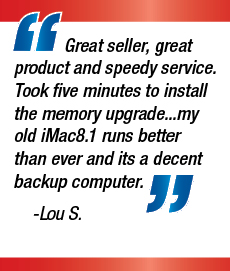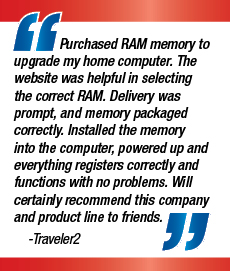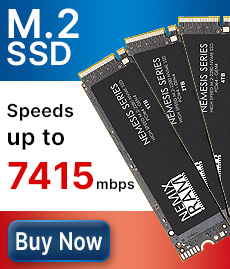Modern computers might be packed full of the fastest and most powerful computer memory and storage solutions ever, with 2TB hard drives and 4GB of RAM a common feature and dual-SSD drives becoming more and more prevalent, but computer memory was not always so effective. From floppy disks to flash drives, and from magnetic tape to complex hard drives which use magnetic forces to function, the evolution of computer memory has been rapid. This guide takes a look at some of the seminal moments in memory development.
The evolution of computer memory began hundreds of years ago with a humble invention; the punch card. Invented in the 19th century by Herman Hollerith, who would go on to be a founder of IBM, paper punch machines were at one point churning out up to 10 million punch cards each day. They were a primitive form of storing and accessing data, and were used to complete census reports in the US, before giving way to magnetic tape as recently as the 1970s.
Magnetic tape was a huge leap in data storage; it could store vast amounts of data over a long period of time on an oxide coated half-inch piece of tape. A single reel could hold data equivalent to 10,000 punch cards, changing the computer industry forever. Magnetic storage is still used effectively in this way; reels are now available with capacity of up to 1TB, and they are widely used for archiving purposes, as well as creating back-ups of a high volume.
The very first DRAM (dynamic random-access memory) chip was developed in 1968 by Lee Boysel, and two years later, Intel went on to realize the first mass-produced DRAM device to the public. It quickly became the world’s best-selling semiconductor chip, and DRAM began to overtake magnetic core memory in the latter half of the 1970s. Workplaces and individuals who had access to computers were suddenly offered the opportunity to store large amounts of information on a single chap, rather than a card or a reel of tape.
Floppy disks were an incredibly popular form of PC storage solution from the 1970s onwards, and they came in various different guises, decreasing in size each time. The term ‘floppy’ was derived from the old 8-inch disks, which were nothing more than a strip of magnetic film covered by a layer of protective plastic, making them fairly bendy. The 5.25-inch and the 3-inch floppy disks came later, with the latter providing one of the prevalent forms of data storage of the 1990s. No longer particularly floppy, and much more durable than their predecessors, these disks are still used as a storage method today.
In the digital era we live in now, the computer storage market is dominated by hard disk drives and SSDs (solid-state drives), both of which utilize innovations that came to light as a result of inventions such as the punch card and the floppy disk. Hard disk drives utilize rotating magnetic platters in order to record and retrieve data, whilst SSDs favor NAND flash memory, which runs faster but has a lower memory capacity. The options available to those searching for memory solutions nowadays are plentiful and expansive, and they are all thanks to the developments which started back in the 1700s with a humble punch card.
To browse Data Memory Systems’ full product range and to buy online, visit http://www.datamemorysystems.com
About Data Memory Systems: The Data Memory Systems’ team wants to provide the best possible quality PC memory and Apple memory at the lowest prices. They offer great service and value for your money. Whether you have a Dell, HP, Sony, IBM or Apple Mac system, they have the compatible memory for your device.









